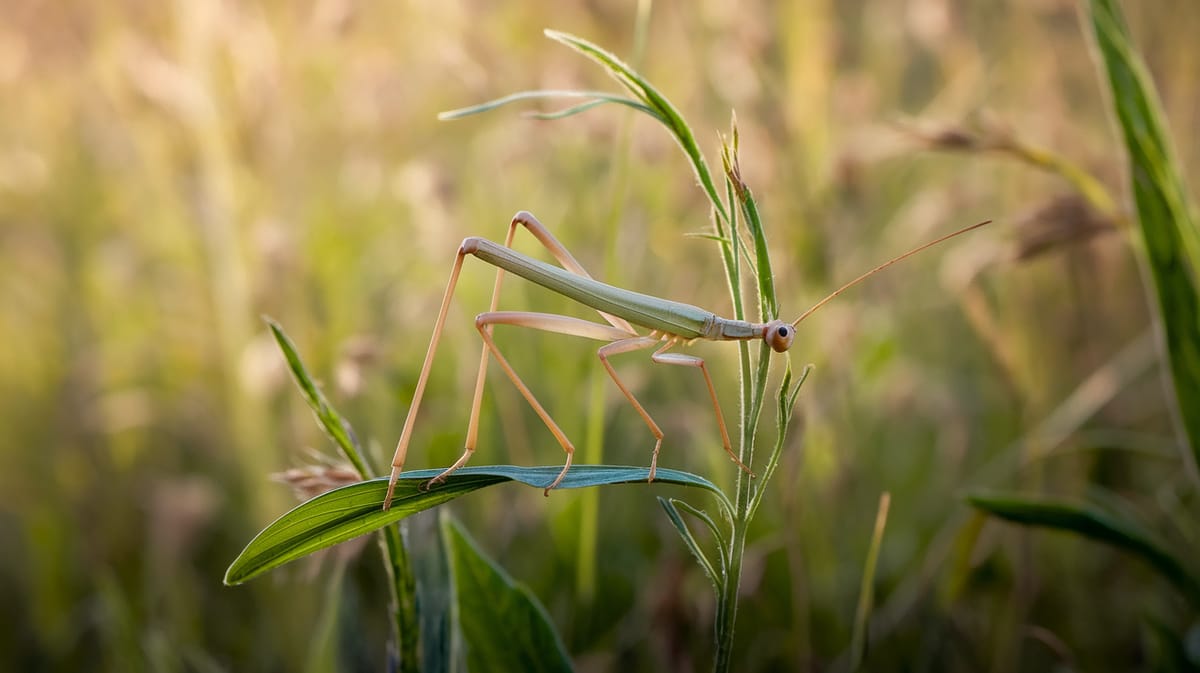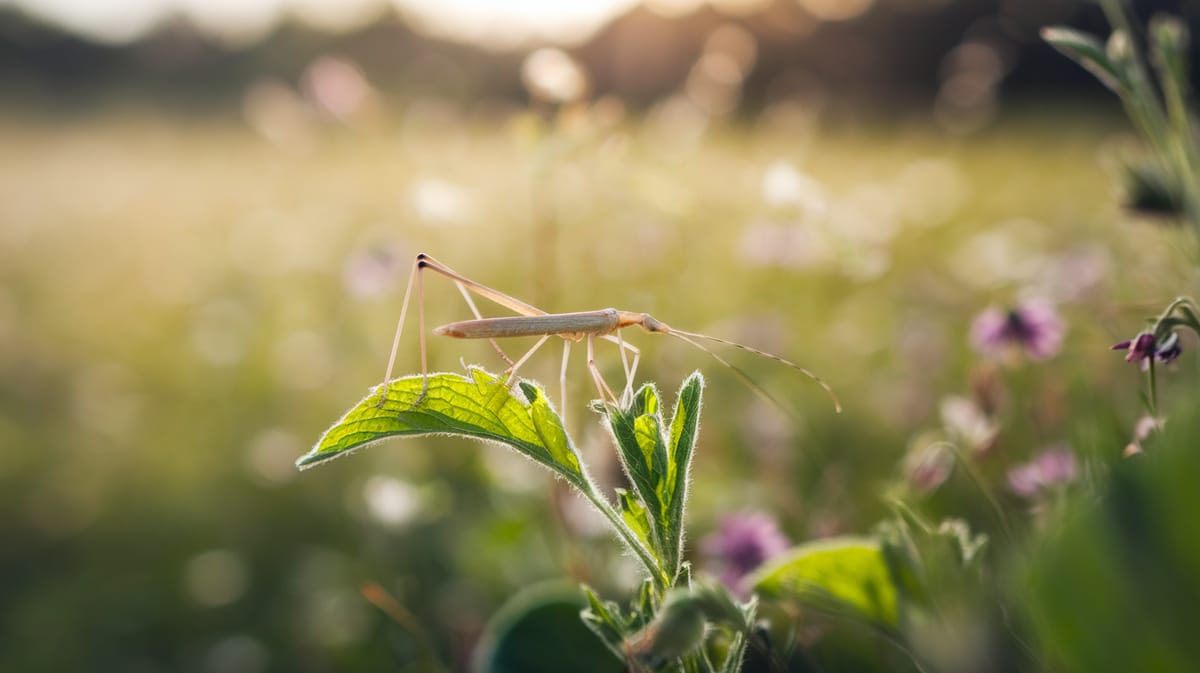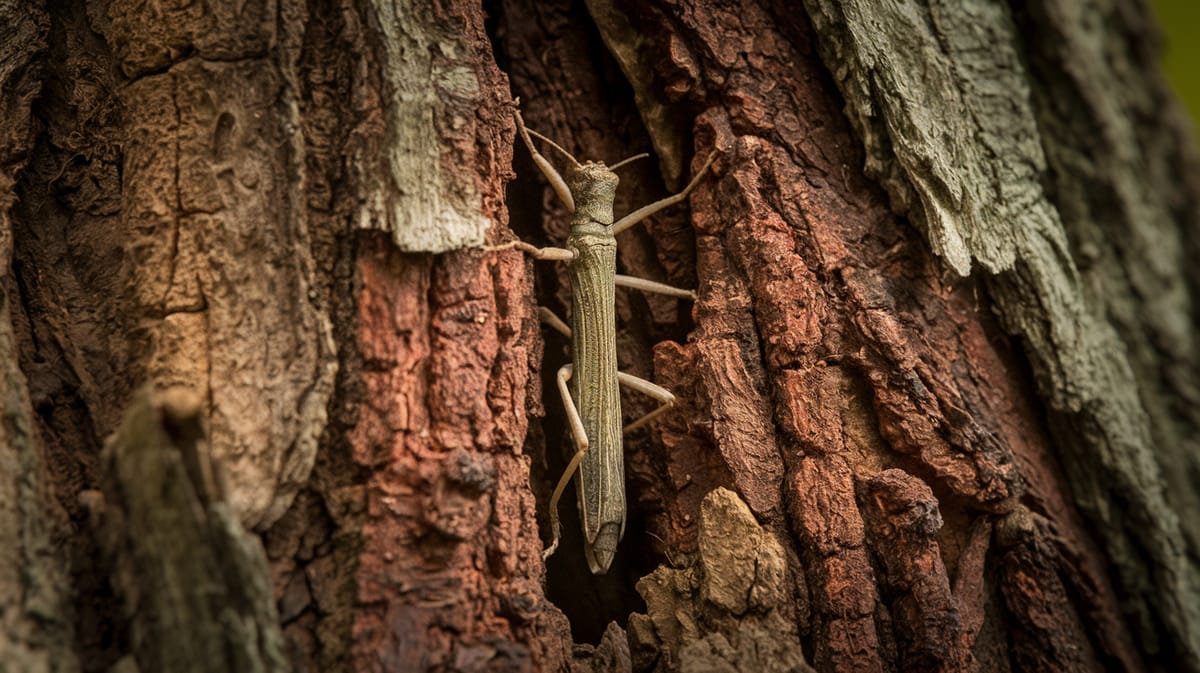Walking Stick
Master of disguise in the insect world, the Walking Stick seamlessly blends into foliage to evade predators. Its role as a herbivore helps maintain ecological balance.

Key Insights at a Glance
Did You Know?
Taxonomy & Classification
Walking sticks exhibit extraordinary camouflage abilities, mimicking twigs and branches to evade predators. Their elongated bodies and unique movement captivate entomologists. Let's understand the evolutionary journey and classification of these remarkable herbivores.
Global Presence
Walking sticks inhabit diverse regions, with over 3,000 species globally, showcasing their adaptation across various ecosystems.
Evolutionary Adaptations
Originating around 200 million years ago, their stick-like appearance evolved to protect against predators, ensuring survival through major ecological changes.
Lifecycle and Growth
A remarkable journey of transformation from Egg to Adult.
Egg
The female deposits eggs resembling seeds on the ground, which remain dormant until conditions are suitable for hatching.
Nymph
Nymphs mimic twigs and undergo several molts, gradually developing their full length and twig-like appearance.
Adult
Fully grown, adults excel at camouflage, blending seamlessly with their environment to avoid predators and consume leaves.
Dietary Habits
A herbivore with a remarkable ability to blend into foliage, it primarily consumes leaves and plants while avoiding predators.
| DIET TYPE | DESCRIPTION |
|---|---|
| Primary Diet | Consumes primarily leaves from trees and shrubs, with a preference for oaks and brambles. |
| Secondary Diet | Occasionally feeds on other plant materials like flowers and soft stems, depending on availability. |
| Occasional | Rarely nibbles on bark or lichen, especially during scarcity or when other food sources are limited. |

Behaviour and Adaptations
Discover the fascinating adaptations that help the Walking Stick thrive in its environment.
Camouflage Mastery
Blends into foliage with twig-like appearance for predator evasion.
Limb Regeneration
Capable of regrowing lost limbs to stay agile and mobile.
Nocturnal Activity
Active during the night to avoid daytime predators.
Ecosystem Impact
Walking Sticks play a crucial role in maintaining ecological balance and supporting biodiversity.
Camouflage Expert
Walking Sticks blend into foliage, providing cover for themselves and other species.
Leaf Recycler
By feeding on leaves, they help decompose plant material, enriching soil nutrients.
Prey Provider
Serve as a food source for birds and small mammals, sustaining the food web.
Conservation Challenges
Understanding and addressing the major threats to Walking Stick populations.
Habitat Loss
Deforestation and land development reduce natural habitats for walking sticks.
Pesticide Exposure
Chemical use in agriculture impacts walking stick survival and reproduction.
Climate Change
Altered weather patterns affect walking stick lifecycles and distribution.
Frequently Asked Questions
How long do Walking Stick live?
Walking Sticks typically live for about one to two years, depending on environmental conditions and species. Their lifespan can be influenced by factors like habitat, diet, and predation. In captivity, under optimal conditions, some species may live slightly longer.
What do Walking Stick eat?
Walking Sticks primarily feed on leaves, with a preference for plants like oak, ivy, and bramble. They are herbivorous and rely on their camouflage to avoid predators while consuming foliage. Their diet can vary based on their geographical location and the available plant species.
Are Walking Stick poisonous?
Walking Sticks are not poisonous. They rely on their excellent camouflage abilities to blend into their surroundings and evade predators. Some species can emit a defensive spray with an unpleasant odor, but this is not harmful to humans.
Are Walking Stick endangered?
Most Walking Stick species are not endangered. However, habitat destruction and environmental changes can threaten some populations. Conservation efforts are vital to protect their natural habitats and ensure the survival of various species. It is essential to monitor specific species for any conservation needs.
What do Walking Stick symbolize?
Walking Sticks often symbolize patience, stillness, and camouflage due to their ability to blend into their environment. In various cultures, they may represent tranquility and the importance of remaining inconspicuous to navigate through challenges. These insects remind us of the value of subtlety and adaptation.
Do Walking Stick bite?
Walking Sticks do not bite humans. They are harmless and rely on their camouflage to avoid threats. Their primary defense mechanisms include mimicking twigs and remaining motionless. They do not possess any stingers or venomous bites and pose no danger to humans or pets.
What color are Walking Stick?
Walking Sticks are typically green or brown, allowing them to blend into their surroundings like twigs or branches. Some species may have variations in color, including shades of gray or reddish-brown, depending on their habitat and the need for effective camouflage.
Does a Walking Stick have wings?
Most Walking Stick species lack wings, but some have small, non-functional wings. A few species can fly short distances. Wing presence and functionality vary among species, with some using wings for display purposes during courtship or as a deterrent to predators.
What does a Walking Stick look like?
Walking Sticks resemble twigs or branches, with long, slender bodies that aid in camouflage. They have six legs, two long antennae, and are usually brown or green. Their appearance helps them blend seamlessly into their environment, providing protection from predators.
Is a Walking Stick an insect?
Yes, a Walking Stick is an insect. It belongs to the order Phasmatodea, known for its stick-like appearance and exceptional camouflage abilities. These insects are well-adapted to their environments and are a fascinating example of mimicry in the insect world.
Related Insects
Discover insects with similar characteristics to Walking Stick - including shared habitats, diets, and taxonomic classifications
Share this profile
Help others discover Walking Stick
